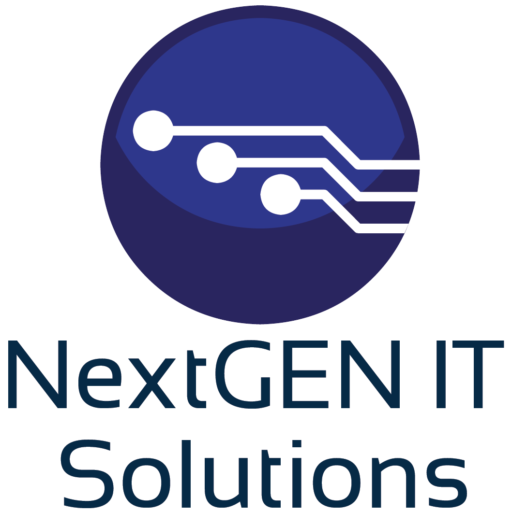
The Digital Transformation of Small Businesses
As professional and technical service industries continue to dominate Pittsburgh, small businesses in the city are fully embracing the process of digitization in the way they operate. Having access to a robust portfolio of advanced IT solutions has become a core coordinating factor for having a competitive edge and operating within an efficient and productive environment. By utilizing technology, small businesses in the City can optimize their operation through enhanced customer experiences, as well as drive tremendous growth.
Moreover, digital space makes it much easier for small enterprises to improve their processes by setting up a solid IT infrastructure and using modern software, which enables the automation of routine tasks. This helps to avoid mistakes and save time, allowing the business to optimise costs since a smaller staff is needed and allows the owners to concentrate on the key areas of the business, like the design or production of goods and the delivery of services.
One of the most important things that comes with digital transformation is the ability to reach customers. When small businesses use customer relationship management (CRM) systems, they gain insights into how customers behave, which can then help them create tailored marketing efforts, personalise customer experiences and create repeat business. In a city like Pittsburgh with more than 15,000 small businesses competing for market share, a personalised customer experience can mean the difference between survival and growth.
Further, digital transformation leads to innovation and agility. Small companies can react to market shifts and emerging trends by harnessing flexible IT solutions. Cloud computing, for example, provides scale-up resources that can match the business as it grows, and the flexibility to meet workloads without having to worry about infrastructure capacity becoming the limiting factor for business growth. Meanwhile, big-data analytics can aid in understanding what is happening in the market and help to anticipate shifts in consumer preferences.
To put it simply, it’s not an option anymore – digital transformation is imperative to Pittsburgh’s small businesses if they want to succeed in a digital world. IT solutions that work for Pittsburgh’s small businesses will help them better manage operations, build connections with their customers, and establish a business model built to last for years to come.
Assessing IT Needs in Small Businesses
As part of this assessment, there should be a detailed review of the technlogical requirments of your small business. To start this, your company needs to clearly identify its current technological capabilities. You should do this through an inventory of your hardware, software and network infrastructure. This inventory then will at least provide a baseline against which you can begin measuring your company’s needs.
Identifying these pain points for their business is a second vital function of this IT needs assessment that small business owners should undertake. Pain points can include the fact that old software saddles a business with inefficiencies, or that the business can’t grow confidently because they store sensitive data and the security has been compromised. If owners involve employees below the executive level while assessing needs, they will be able to identify more of these pain points, because they are often the ones who can’t execute their tasks because of technological problems. For Pittsburgh businesses, staying ahead of these concerns is a constant need as their competitors will adapt.
For example, an IT needs assessment for a small business in Pittsburgh needs to take into account the unique circumstances companies in that area face. Pittsburgh’s economy is well known for its strong startup culture, its vibrant manufacturing sector and its growing economy as a whole. An IT strategy for such a diverse ecosystem has to consider the local business requirements, its regulatory environment, and the talent available. For example, while a small retail business in Pittsburgh might want to upgrade its point of sale systems, a local digital marketing agency might want to roll out advanced analytics and focus on data security.
Assessing your market niche, customers, employees to come up with a big picture can help small businesses match their IT infrastructure not only with strategic goals and current realities but also with future directions. Be it on paper or electronic, creating a complete and accurate IT picture enables business owners to select IT solutions that cost-effectively meet current IT deficiencies while also preparing the business for the unforeseen and less certain needs.
Cloud Computing: A Game Changer
Nowadays, businesses not only compete over products/services itself, but also the way their business is done. As growing more competition, especially emerging companies in Pittsburgh can take advantage of cloud computing andiveness of their busineses. Firstly, cloud computing is cost-effective, providing tools to small businesses to speed up business activity at a low-cost or zero-cost option. Employees can access company information from the Internet anywhere at anytime. And cloud computing activities can be scaled up during high demand and handling low demand at the same time.
SaaS makes it possible for small businesses in Pittsburgh to benefit from software applications ‘in the cloud’; they don’t need to purchase and manage their own intensive computer infrastructure (which often requires skilled full- companies are able to reduce costs and technical complexity, and concentrate on their core needs. For example, local startups can follow the process of innovation with SaaS applications such as customer relationship management (CRM) systems, which automate such aspects of the sales process as new lead management, prioritisation and individual touches with customers.
Similarly, IaaS provides central computing resources such as virtual machines, storage and networking in a pay-as-you-go format. In this manner, a business can scale up its infrastructure as needed without huge investment upfront. For instance, an e-commerce company based in Pittsburgh that sees seasonal slumps and spikes in web traffic can upscale or downscale server capacity to suit the times of the year.
Because PaaS provides entire development and deployment environments in the cloud, it can enable enterprise customers to easily build and launch centrally administered applications quickly with reduced time to market for new products and services. Locallyate without becoming mired in details of having to manage infrastructure from the ground up.
Pittsburgh’s small-degree fibre network is well-suited to these cloud computing solutions, which can help strengthen the viability of small businesses and set them up for long-term growth. Dynamic scaling of operational resources, reduced capital expenditures and access to state-of-the-art technology are essential components of a protracted period of process and infrastructure improvement – the ability to adapt to real-time environmental changes, be they in market insights or technology.
Cybersecurity for Small Businesses
As we live in a digital world, People nowadays need to protect their important data. It is critical for small businesses in Pittsburgh has to take seriously about cybersecurity as they relied on data.
Recently, there are so many types of cyber harm which will made them lost their data. So, it is very important that they should have the right cyber security. For instance, they can secure their network to locked by firewalls & antivirus to avoid their systems being harmful attack or being edited by others.
Finally, ensuring that employees follow strong password policies is of utmost importance. Urging employees to use complex passwords and change them on a regular basis, and using multifactor authentication (MFA) to add another layer of security, minimises the likelihood of breaches in your business.In addition, educating employees about phishing scams and other types of social engineering can go a long way in helping them avoid falling for such tricks. Offering regular training sessions on avoiding phishing attempts can help employees recognise and take appropriate action when presented with such unwanted offerings.
Other local services are available to strengthen small business cybersecurity in Pittsburgh. The Pittsburgh Technology Council offers programmes and workshops on cybersecurity best practices, giving small businesses access to expert advice about emerging threats and defences. More narrowly focused, there is the Cybersecurity Center at Carnegie Mellon University, which includes research relevant to small businesses and other businesses interested in improving their cybersecurity posture, as well as tools to meet that goal.
Using these local resources and basic cyber hygiene, small businesses in the Pittsburgh area can defend themselves more effectively against cyber threats. Securing their networks and their password discipline and training staff to avoid being targeted make their business more resilient – and create a virtuous willingness to watch out for digital security when it matters most.
Leveraging Data Analytics for Business Growth
The word is ‘data analytics’, what can be said to be the backbone of business growth, especially for small businesses aspiring to occupy a profitable niche. Data analytics entails different techniques and procedures for examining raw data to gather intelligence. The gathered intelligence can be highly useful in helping to understand customer behaviour, identify trends in the market, and optimise operational performance to make sound strategic decisions.
The first step of any data analytics process is simply collecting data. A local Pittsburgh business might compile data of individual customers’ purchases over time, or numbers of visitors to a company website, or comments on certain social media posts. The next step is cleaning the data to ensure that what is being collected is accurate and targeted. Then, the period of analysing that data comes into play when the information is interrogated via various tools and approaches, with tools such as charts and graphs being used in some cases to uncover patterns and correlations.
You might also have to figure out what kinds of applications are available: different tasks would call for varying kinds of software, which can range from basic Excel spreadsheets to IBM’s SPSS (often used for large-scale psychological studies) or Google’s BigQuery. Tools like Tableau or Microsoft Power BI, for example, can be useful for small businesses – the premise is that there can be several different applications that translate complex data into useful visual information to help you make sense of your numbers quickly using Bar charts and line graphs.
Kielbasi sausages produce and distributors in Pittsburgh can use this data to build better marketing messages: they can tailor ads to the attributes of their customers, and sell to someone at any point in the supply chain. They can also improve efficiencies in operations. By using operations data, companies can track nuances in their supply chain to better understand where things are getting bogged down.
Additionally, more focused is more useful, particularly when increasingly common applications of data analytics involve generating unique, competing explanations: for example, customer relationship management (CRM) systems that reveal customer preferences and anticipate their needs. By being smart about the use of data analytics on PI’s dashboard, Pittsburgh’s small businesses will not just survive, but substantially increase their ability to innovate and compete in the evolving and dynamic marketplace.
Enhancing Customer Experience with IT Solutions
Consider the plight of a small business in Pittsburgh trying to compete in the digital, high-tech world of today. The business owners will have to invest in IT solutions to stay competitive. By successfully integrating several technologies, they will smoothen their workflow, improve customer experience, and hopefully retain their competitive edge. In the remaining text of the task, you will read about one new technology in particular that is helping small businesses keep existing customers, and perhaps attract new ones: ‘customer relationship management’, or a ‘CRM’ system. These technological systems are used to manage and analyse interactions with existing and future customers in an effort to better meet their needs and expectations. Recently, Roast and Brew, a local coffee shop in Pittsburgh, introduced a CRM system to keep track of customers’ orders and preferences. With the help of the CRM, the coffee shop created targeted marketing programs based on customers’ purchases and their interests, leading to a 15 per cent increase in repeat customers.
Similarly, chatbots are indispensable customer service tools that allow businesses to offer round-the-clock support to help clients resolve questions or issues in a timely manner. The Blue Sky Bakery in Pittsburgh, for example, created a chatbot for its website to help answer customer questions about their orders, ingredients and delivery times. Not only did it save employees time, but it also allowed clients to have all their questions answered, leading to greater customer loyalty.
Personalised marketing is another vital ingredient for crafting the ultimate customer experience. Small businesses can leverage data analytics to create marketing initiatives that speak directly to their customers. In Pittsburgh, Steel City Crafts, a small shop specialising in artisan handicrafts, began to use data-driven personalisation in its marketing tactics to send customised promotional pieces and product recommendations to its customers. The result? A 20 per cent increase in sales.
in conversion rates and a notable increase in customer engagement.
To conclude, IT solutions are helping small businesses in Pittsburgh to improve their relationship with their customers, thus, bringing a better overall customer experience. There are multiple uses of IT programs such as CRM systems, chatbots and individualised marketing campaigns as examples. The reason why the use of technology is changing the customer service drastically is because it assists businessmen promote their services, deliver them in a more informative and fast way, and thus it helps them evolve in their scope in a sustainable way in the digital world.
Integrating Software Solutions for Operational Efficiency
Today, integrated software solutions have become one of the most essential tools for small business and enterprises to combine and save different parts of business operations on a single software package, thus it is capable of running an entire business. This means operations such as inventory, finance and sales, among others, can be included in a single software, thus reducing duplication. For example, Enterprise Resource Planning (ERP) software helps businesses combine different operational activities.
With ERP systems, all their once siloed operations are consolidated into a single database, enabling near-real-time access to data and better decision-making. Keeping track of inventory becomes much easier. Among Pittsburgh’s small businesses that have adopted ERP solutions, many have reported marked reductions in improved inventory turnover rates. In one case, the software helped a local Pittsburgh bakery align its purchase orders for ingredients with its sales data, ensuring optimal inventory levels and greater operational efficiency.
Point-of-Sale (POS) systems are another block of the tightly integrated software suite. Not only do these systems support the transaction-level processes, their built-in analysis functions often help better plan merchandise and identify seasonal purchasing patterns. In Pittsburgh, rising number of retailers rely on advanced POS versions, improving their businesses efficiency. Take, for instance, a clothing boutique that plugged its POS into its customer relationship management (CRM) capabilities, by sending customised marketing campaigns to loyalty customers based on their previous purchases. This allowed the business to hold on to their custom longer.
Along with ERP and POS systems, integrated software facilitates flawless financial management. Flawless financial analysis is pivotal for small businesses. For instance, with integrated financial modules, SMEs can automate bookkeeping, keeping track of spending and generating financial statements for analysis. This way, entrepreneurs can understand their company’s money movements, in growth opportunities with confidence.
In conclusion, there is no doubt that small businesses in Pittsburgh are more likely to reduce their costs and improve their performance if they start using integrated softwares. These solutions (ERP and POS systems) help small business to track their inventory, finance and sales accurately and ten times faster than when they are using paper work and humanized managing tasks.
Future Trends in Small Business IT Solutions
Because, in general, technology is constantly changing and the market is evolving. And with so many changes for competitive startups in the small business arena, Pittsburgh is an ever-changing Cityscape. There are a few technological trends that can really help small businesses thrive, and those are artificial intelligence, IoT, and blockchain technology.
AI (artificial intelligence) is easier than ever to use, providing smaller businesses with a host of powerful tools to help with automation of day-to-day tasks, as well as improved analytical insights to guide decision-making. Chatbots and other AI-powered features can improve customer engagement, with AI-powered analytics providing deeper insights into customer behaviour. It can help to scale up services without a huge investment in human resources.
Likewise, the Internet of Things (IoT) can revolutionize the way small businesses control their resources. For instance, IoT devices can help businesses monitor and manage different processes in real-time, such as inventory and energy management. Business sectors in Pittsburgh, although not skyscrapers, can benefit from IoT adoption: its operational efficiency enhances product quality, lowers overhead and improves productivity.
Moreover, smaller firms in Pittsburgh must plan how to use these developments and needs to be ready to invest in these new techs such as upskilling employees, investing in IT workers, and learning continuously about latest tech trends to help their planning. This way they will be able to grow, meet user demands, and be able to survive in this competitive market.
Through embracing anticipated IT solutions, small businesses in Pittsburgh can learn how to not just survive, but to profit from a foreseeable digital future.



